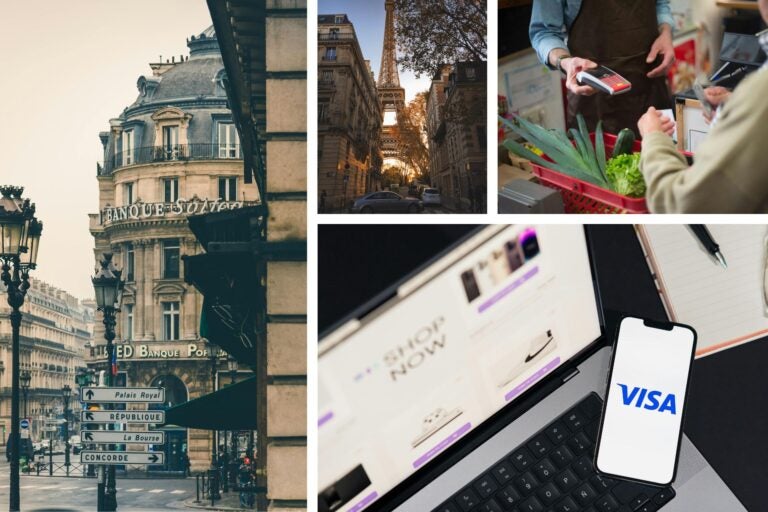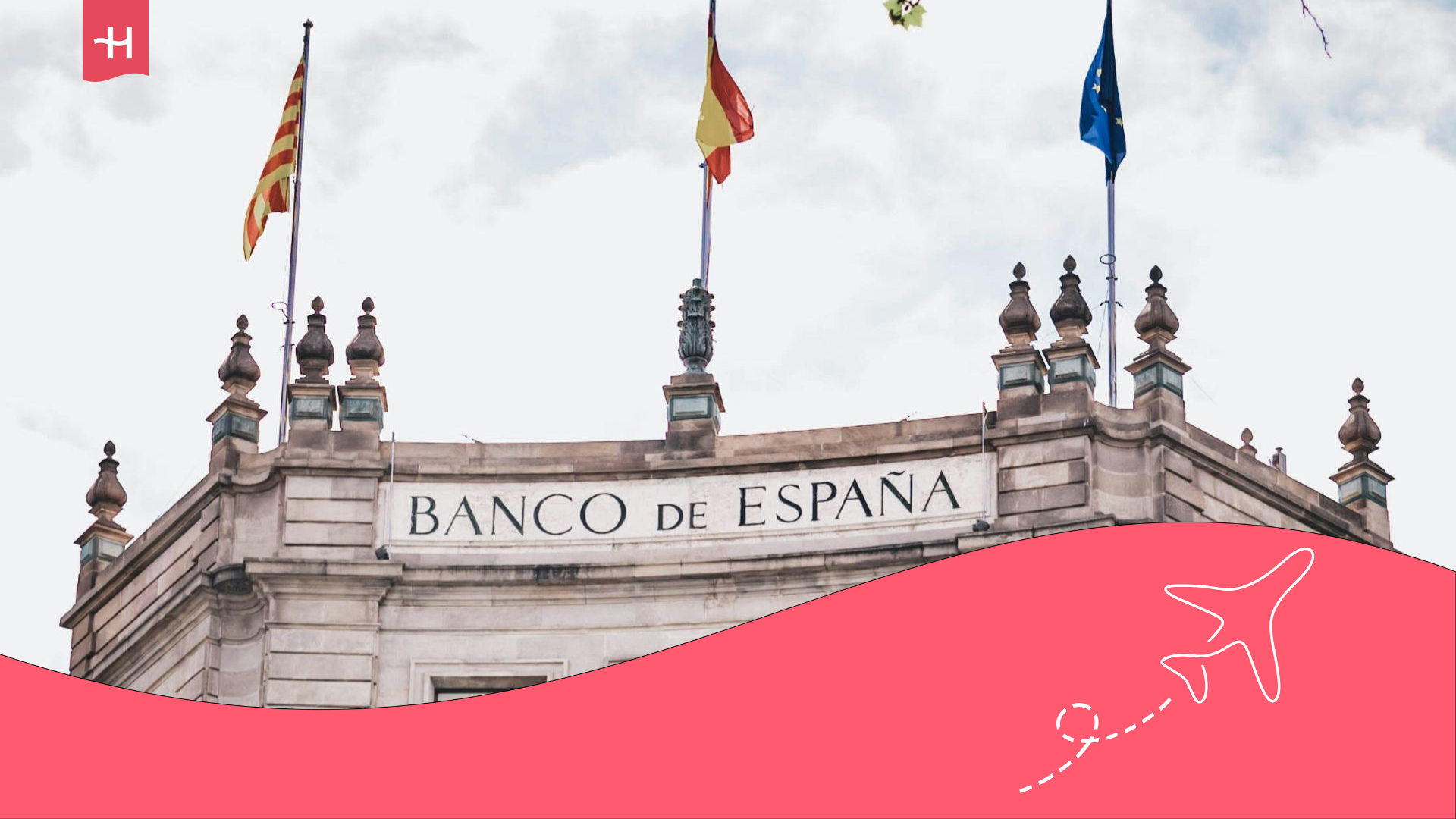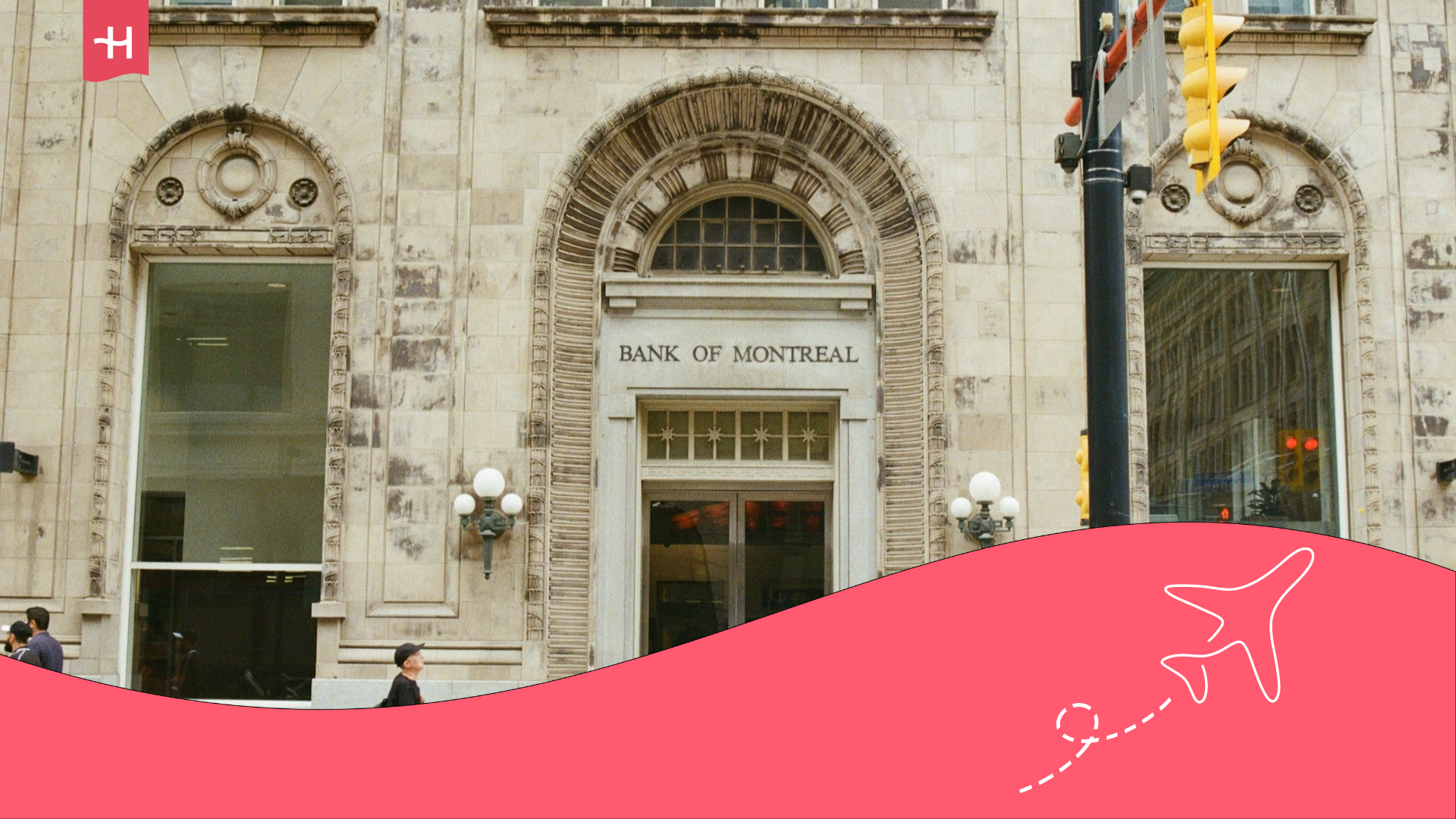Banks in France for foreigners: What is the best option?
Deposit your savings in banks in France for foreigners and live peacefully in the country of the Louvre and the Eiffel Tower.
France, known for its rich artistic and fashion heritage, attracts thousands of expats looking for a better quality of life, career opportunities, and stunning surroundings. If you’re moving there, it’s essential to know the best banks in France for foreigners and open an account. Choosing the right bank will make it easier to receive your salary, access a credit card, send money abroad, and handle your everyday finances without hassle.
France has a vast network of local and international banks, along with digital banks that are always accessible online. In this article, we’ll walk you through the different types of banks available, their features, as well as their pros and cons. Whether you’re planning to move to France or already living here, this guide will help you make the best choice. Let’s get started!
Why open a bank account in France?
Opening a bank account in France as a foreigner is a smart move—it makes life much easier. If you’re relocating for work, your employer will require a French bank account to deposit your salary. If you’re a digital nomad, having a local account allows you to manage international transfers in multiple currencies. And if you’re a student, whether you’re receiving a scholarship or just need a card for everyday expenses, a French bank account is essential. Plus, many banks offer special student plans with lower fees to suit your needs.
Opening a bank account in France is a must for many everyday essentials, from renting or buying a home to setting up health insurance or receiving government benefits. French banks are highly trusted worldwide, with strict regulations that keep your money secure. At some point, you’ll likely need one, so it’s worth looking into your options early and finding the best fit for your lifestyle and financial needs.
Requirements to open a bank account in France
To open a bank account in France, you’ll need to meet certain requirements, which can vary depending on the bank. Digital banks and neobanks generally have more flexible conditions compared to traditional banks. However, there are some standard criteria that apply to all. Here’s a breakdown of the key requirements you should be aware of:
- Official identification: Passport or valid identity card.
- Proof of residence: Utility bill, rental contract or letter of residence.
- Proof of income or activity: Employment contract, letter of admission to an educational institution or document indicating economic activity.
- Residence permit (if applicable): For non-EU citizens, they can apply for a visa or residence permit.
Important: If you are a frequent traveler and want to stay connected without worrying about expensive roaming or looking for a new SIM at every destination, Holafly’s subscription plans are for you. With a single eSIM, enjoy internet in more than 170 countries for a fixed price and no surprises on your bill. travel without limits and connect easily and securely! 🚀🌍

Types of banks with services for foreigners in France
When it comes to banking in France as a foreigner, you have plenty of options. Banks generally fall into three categories: neobanks, local banks, and international banks. Let’s take a closer look at each type—their features, services, and some of the most well-known names. Given France’s multicultural environment, many banks have tailored their policies and services to better accommodate expats.
Neobanks or digital banks
Neobanks are fully digital financial institutions that operate exclusively online, without physical branches. They offer a modern and convenient banking experience, ideal for expats who prefer to manage their finances independently and online. This approach makes transactions faster, more efficient, and often more cost-effective.
| Bank | Features |
| Revoult | Easy international payments and multiple currencies. |
| N26 | Accounts with no maintenance fees and easy opening from anywhere in the EU. It has a card for travelers. |
| Bunq | Specialized in sustainable services and personal finance advice. |
Local banks
These banks are spread across the country and offer a broader range of services compared to digital banks, such as mortgages, loans, and investment options. They also tend to be more flexible, with services tailored to expats. Here are the main local banks:
| Bank | Features |
| Crédit Agricole | It focuses on the rural community and has special services for foreigners. |
| Banque Populaire | Recommended for students and small businesses. |
| La Banque Postale | It is a very flexible and accessible bank, perfect for foreigners. |
International banks
If you’re looking to manage finances internationally and make cross-border transfers, this type of banking is ideal. These banks specialize in connecting you with global financial networks, offering multi-currency accounts, international investment guidance, and advanced solutions for businesses. Here are some of the leading names to consider:
| Bank | Features |
| HSBC France | Offers global accounts and products for foreigners. |
| BNP Paribas | French bank with international reach, recommended if you make many transfers to other countries. |
| Deutsche Bank France | Aimed more at high net worth global clients. |

Top 5 banks in France for foreigners
After covering the three main types of banks in France for foreigners, we’ve narrowed down what we believe are the top five. Our selection is based on the products they offer, their fees, maintenance charges, and, most importantly, how accessible they are to the expat community living here. Let’s dive into our ranking!
BNP Paribas, for expats with international business
Founded in 1848, the bank merged in 2000 with two historic institutions, Banque Nationale de Paris (BNP) and Paribas. Today, it stands as one of Europe’s largest banks with a significant international presence. It specializes in corporate banking, investment services, and catering to the global financial needs of expats. Here’s a look at the services they provide:
- Espirit Libre account: Includes basic services such as credit cards and online banking.
- International accounts: Multi-currency management and international transfers with low commissions.
- Additional services: Life insurance, mortgages and investment products.
- ATMs and branches: Over 7,000 ATMs and 1,800 branches in France.
- Opening hours: Monday to Friday, from 9:00 am to 5:30 pm (some branches open on Saturdays).
- Digital channels: Advanced mobile app.
| Advantages | Disadvantages |
| Large international network | Premium account with high costs |
| Multilingual customer support | Proof of income required |
| Extended opening hours | Face-to-face account opening |
Crédit Agricole, ideal for international students
This French bank was established in 1894 to support the country’s agricultural communities. Over time, it broadened its services to meet the needs of all kinds of clients, eventually becoming one of the best options for foreigners in France. It also provides specialized services for students to help them manage their finances while living here.
- Eko account: No fees, includes debit card and access to the mobile app.
- Youth accounts: Reduced fees and basic services for students under 30.
- ATMs and branches: Extensive network, especially in small towns and villages.
- Opening hours: Monday to Friday, from 9:00 am to 6:00 pm (depending on the region).
- Digital channels: Simple and fast online banking.
| Advantages | Disadvantages |
| Accessible products for students | Less presence in large cities |
| Low or non-existent rates | Less advanced digital services |
| Large number of branches in small cities | Not the best bank for entrepreneurs |
Revolut, for those seeking digital flexibility
Founded in 2015 in the UK, this bank has become a favorite among travelers and digital nomads thanks to its global reach and low transfer fees. It’s an ideal choice for those who prefer digital banking and don’t need personalized support. Here’s a look at the services they provide:
- Standard Plan: Free account that includes a basic debit card.
- Premium and Metal Plan: With travel insurance and access to exclusive benefits. Multi-currency management is also available.
- ATMs: Access to any international network.
- Opening hours: 24/7 customer service through the app.
- Digital channels: Intuitive and efficient app for all financial transactions.
| Advantages | Disadvantages |
| No residency requirement | No physical offices |
| Global transfers | Fees for large withdrawals after a limit |
| 24-hour customer service |
HSBC France, for high-income expats
HSBC (Hongkong and Shanghai Banking Corporation) was established in Hong Kong in 1865 and expanded in 2000 when it acquired CCF (Crédit Commercial de France), rebranding as HSBC France. This international bank mainly caters to high-income clients. Here’s a look at some of their standout services and products:
- HSBC Advance account: Global banking services and credit lines.
- Wealth management: Personalized financial advice and investment products.
- ATMs and branches: Main cities in France.
- Opening hours: Monday to Friday, from 9:00 am to 5:30 pm.
- Digital channels: Advanced investment portal.
| Advantages | Disadvantages |
| Support in several languages | Minimum income requirements |
| Strong branch network | High maintenance fees on premium accounts |
| Not recommended for students | Focused on foreigners with high net worth |
La Banque Postale, for temporary residents
This local bank was established in 2006 as part of France’s postal service. It became independent that same year and has since become one of the top banks in France for foreigners, focusing on individuals with basic financial needs and small businesses. Known for its simplicity and accessibility, here are the services it offers:
- Basic account: Accessible to foreigners, payments and deposits at very low rates.
- ATMs and branches: Wide network throughout the country, including rural areas.
- Opening hours: Monday to Friday, from 9:00 am to 6:00 pm; Saturdays until noon.
- Digital channels: Functional app for simple transactions.
| Advantages | Disadvantages |
| Support in several languages | Minimum income requirements |
| Strong branch network | High maintenance fees on premium accounts |
| Not recommended for students | Focused on foreigners with high net worth |

Which is the best bank in France for foreigners?
In the previous section, we highlighted the main features of the top five banks in France for foreigners. Choosing the best one isn’t straightforward, as it depends on your individual needs. Here’s a brief overview:
| Bank | Features | Main disadvantages | Fees |
| BNP Paribas | Extensive branch network, multilingual service. For long-term residents. | Higher rates for non-residents | 2.50 euros per month ($2.63) for basic accounts. |
| Crédit Agrícole | Personalized attention, focus on small communities. For foreigners living in rural areas. | Lengthy bureaucratic processes | 2 euros per month ($2.10) |
| Revolut | 100% online opening, no commissions on transfers. Ideal for students and digital nomads. | No physical branches | Free basic account |
| HSBC France | International presence, perfect for foreigners with high pratimony. | Stricter account opening requirements | 29 euros per month ($30) and free for income over 4,000 euros per month ($4,208). |
| La Banque Postale | Simple and accessible banking for everyone. No fees. For students and temporary workers. | Limited services | Free basic account |
In conclusion, if you’re a student or a temporary worker, La Banque Postale is a great choice for a local bank, or Revolut if you prefer a digital option. However, if you’re a business owner or investor with higher earnings, HSBC France can offer more specialized services to meet your financial needs.
Steps to open a bank account in France
The first step to opening an account is to choose the bank in France that best fits your personal or business needs. Think about whether you prefer a more hands-on, personal service—if that’s the case, a local or international bank would be a good option. However, if you’re tech-savvy and want more flexibility in managing your finances, neobanks might be the perfect choice for you.
The next step is to gather the main documents you’ll need to open your account: a valid ID such as a passport or residence card, proof of address in France, proof of income, and, in some cases, a French phone number.
The next step is to contact the bank, either by phone or in person, to book an appointment to open your account, as with BNP Paribas or Crédit Agricole. With digital banks, you can begin the process online. Keep in mind that some banks, like HSBC France, might require a minimum deposit.
Lastly, you’ll sign the contract, and in some cases, your bank card will be mailed to you. You’ll need to activate it at the specified ATMs. With neobanks, however, the process is much quicker, and you’ll have access to your account within minutes of making the request. Now, you’re ready to enjoy your bank account and take care of all your financial needs in France. Au revoir!
Frequently asked questions about banks in France for foreigners
Digital banks such as Revoult do not require it, but local and international banks will ask for a fixed address in France and its verification.
Definitely, La Banque Postale. This bank is focused on students with special accounts for them and no commissions.
The process usually takes between three and ten business days, but with digital banks, everything is much faster, and you’ll have access to your account right away.
Yes, you can, but not at all banks in France for foreigners. For example, HSBC France offers more flexibility in this regard, as do digital banks.
International banks typically have staff who can speak English, and sometimes other languages like Spanish or Italian. However, smaller local banks, especially in rural areas, might not offer this service.





 Language
Language 


















 No results found
No results found








